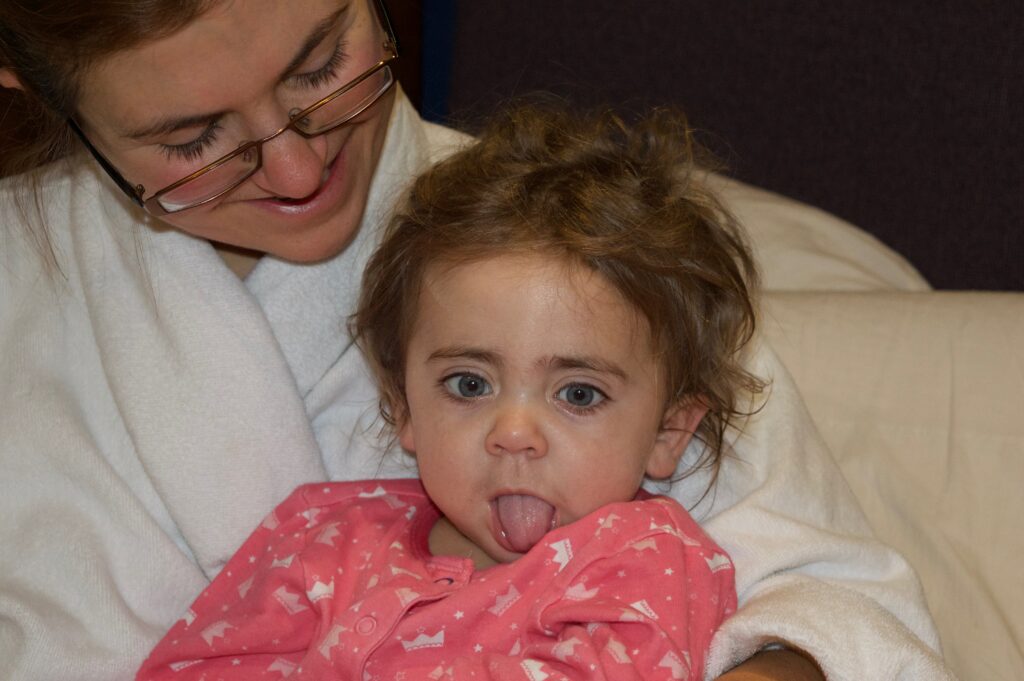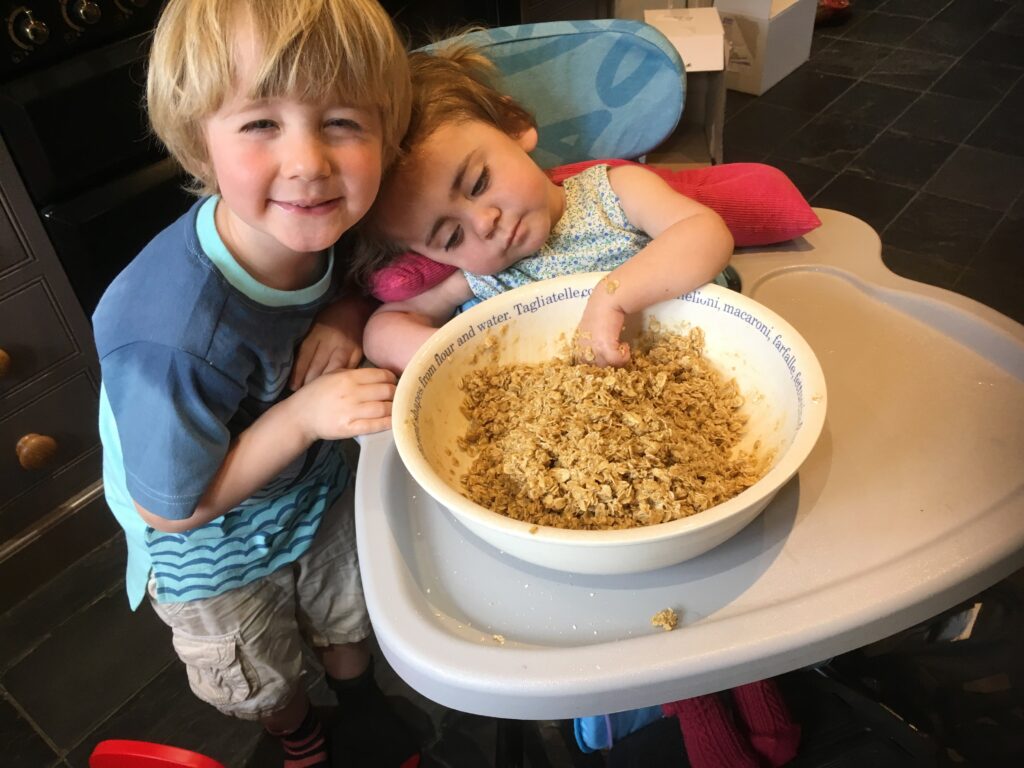My Story
The early part of my career was spent working on health inequalities and access improvement in inner London, across primary care and public health. I ran service improvement and analysis projects as well as running large clinics and services. I moved NHS England after the 2012 reforms, where I held positions working in planning, analytics and large scale national transformation programmes in such things as long term conditions, urgent and emergency care.
During this time, I had two children, the youngest of whom -Thea- was born in 2016. She loved dinosaurs, Bob Marley and bright sparkly colours -though her favourite colour was green. She knew what she liked and would certainly let you know about the things she didn’t!
At six months old we found that Thea couldn’t eat solids, and after a lot of back and forth, just before her first birthday she was diagnosed with a rare, neurodegenerative genetic disease which would cause complex disabilities.
Why I created Iris
Despite the prognosis, I felt that with my background I was in a good position to make sure we could access the support Thea would need. The systems and processes for accessing support for children with additional needs are so complex and lengthy that she died before we had any proper support in place, just before her third birthday.
Whilst Thea’s life was full of joy and happy times, this was down to sheer stubbornness on my part, but as a family we were isolated and alone, managing a situation that we were both ill-equipped and unprepared for.


Thea's diagnoses
Thea had a clinical diagnosis, a health condition. She relied on a wheelchair, was fed through a tube, had very little ability to move (for example, lift her arm, kick her legs, sit, walk etc) and no means of communication beyond what she could tell us with her eyes. Thea, and others like her, make up just 0.003% of the population. They are clinically vulnerable and medically complex, relying on others for every aspect of their lives.
The reality
The vast majority of people I have worked with in the system, both personally and professionally, are dedicated and committed to doing their best for the people they serve, yet all around the country children with complex needs and their families are being let down by convoluted processes and systems not designed to meet their often very specific and unique needs. And this is as true for Thea and children like her as it is for those with complex autism or mental health needs. Frontline staff are suffering moral injury and burnout at being unable to support children and families in the way they want to, and NHS, local authorities and education departments are under increasing strain, with spiralling costs (including court battles) and frequent reorganisations, trying, and sadly often failing, to meet ever more complex and changing needs. This is not the fault of any individual action, but without true understanding of the experience of families and expertise in policy, the landscape appears overwhelming and too complex to affect.
Addressing the issues
Iris has been created to bring together partners from across the system and demonstrate that there is a better, and cheaper way of doing things.
I have spent my life working in the health system, in policy and practice, and I have spent the years since Thea’s death working in and researching the system to support children with special educational needs and disabilities. With both my professional and personal experience, I have created Iris to address this issue. Iris works with and through the whole system, from the board rooms of the authorities to the living rooms of families to create solutions that truly empower children and their families, and save money for taxpayers.
How can Iris help my organisation?
With quality coproduction Iris can support your organisation and help ensure responsibilities are met:
Reduce SEND Costs
Provide more effective, lower cost EHCPs
Forge better relationships with families
Improve school-based support for children and young people
Create happier families with better outcomes
Reduce mental health admissions
Alleviate pressures on social care
Provide a deep and true understanding of families’ needs.
How can Iris help my family?
Iris can help you to navigate to complex systems and access the right support and people:
Support brokerage for families
Help with EHCP applications
Connect you to the right organisations
Improve school-based support for children and young people
Provide you with access to research
Communicate your unique situation to organisation to improve your chances of accessing the support you need
